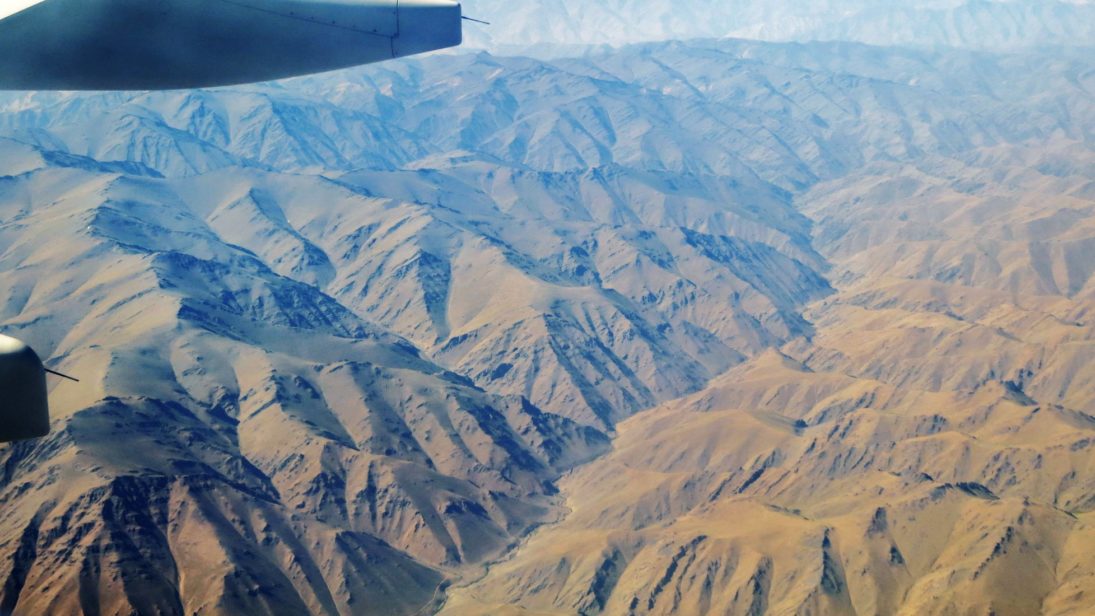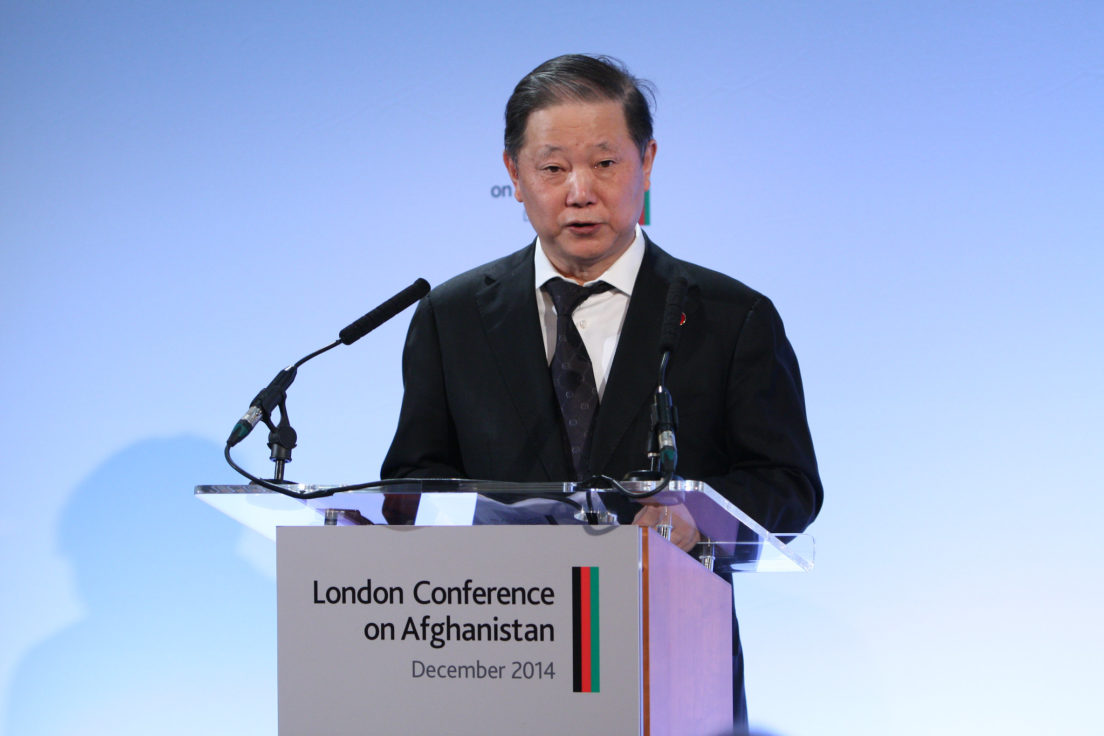
A stable and peaceful Afghanistan is important for China as the latter seeks to prevent extremism from infiltrating to its mainland and aims for full optimization of the Belt and Road Initiative (BRI). China has cooperated with regional and great powers to help manage the Afghan peace process and post-withdrawal Afghanistan. However, China’s deteriorating ties with the United States and India, due to their unwavering opposition to the former’s regional geo-economic plans, has pushed China to take a more assertive stance in matters relating to Afghanistan. China has not only been directly engaged with the Afghan authorities in taking strict security measures on the mountainous border but also increased cooperation with regional powers, including Russia, Pakistan, and Iran. Although creating two separate leagues does not serve the interests of any involved parties, China’s worsening relations with the United States and India may lead to the establishment of a China-led regional bloc directed towards mitigating the terror threat and increasing economic activity in Afghanistan.
The BRI, EAEU, and China’s Role in Post-War Afghanistan
Beijing has been maintaining smooth ties with the authorities in Kabul. In a renewed effort to strengthen ties, Chinese Foreign Minister, Wang Yi during a conversation with his Afghan counterpart, termed China as Afghanistan’s “most trusted neighbor,” and expressed its desire to enhance cooperation under the framework of the BRI. He also re-emphasized China’s commitment to combat the terror threat within Afghanistan. The Afghan foreign minister also showed a willingness to deepen joint counterterrorism efforts and strengthen economic cooperation under the Belt and Road framework. Denouncing U.S. unilateralism, Wang and his Russian counterpart renewed their commitment to strengthen coordination in major international and regional affairs and promote synergy between the construction of the BRI and the Eurasian Economic Union (EAEU).
Interestingly, the Sino-Russian call to regenerate their cooperation came not long after the U.S. Special Representative for Afghanistan Reconciliation, Zalmay Khalilzad, along with the Chief Executive Officer of the United States’ newly established International Development Finance Corporation, undertook a trip to the region. During the visit, Washington announced its intentions to work on the economic reconstruction of Afghanistan with the cooperation of Central Asian states and Pakistan. For the potential merger of their giant geoeconomic plans of the BRI and the EAEU, Beijing and Moscow are already working with Pakistan and the Central Asian States, respectively.
Washington’s push for independent models for Afghanistan’s reconstruction shows a hardening of its previous stance of non-cooperation to that of competition. This would certainly put extra pressure on the Central Asian states and Pakistan. First, those states would be forced to choose between Washington and Beijing-Moscow’s reconstruction efforts. Second, the institutional capacity of these developing countries to opt and implement the two mega plans simultaneously seems to be insufficient. There is also the possibility that many sub-projects of the great powers’ regional geo-economic plans may overlap each other—as a result of which implementation of both plans simultaneously could turn into a fiasco. More importantly, the race for separate future models risks weakening regional cooperation on the ongoing Afghan peace process.
Washington’s push for independent models for Afghanistan’s reconstruction shows a hardening of its previous stance of non-cooperation to that of competition.
The Risks of Regional Polarization
Since merging the BRI and EAEU depends on a stable Afghanistan, China and Russia have been supporting the U.S.-led Afghan peace process by extending a number of infrastructure projects in Afghanistan. However, the United States and India, its most trusted regional ally, continue to denounce the China-Pakistan Economic Corridor (CPEC), BRI’s flagship project. Part of India’s opposition stems from the fact that the CPEC runs through the disputed territory of Gilgit-Baltistan (GB). India’s abrogation of the special status of Jammu and Kashmir in August 2019, however, has led Pakistan to mull over the idea of making GB a full-fledged province. In the coming months, it will be important to watch Washington and New Delhi’s reaction to any such development, especially regarding the recognition of CPEC.

In addition to their joint disapproval of the CPEC, the United States and India continue to share a narrative regarding extremist terror operatives in the region. Both India and the United States expressed hostile comments against Pakistan in the joint statement issued following the recently held Counter Terrorism Joint Working Group and Designations Dialogue. However, it is worth noting that the United States and the international community have previously acknowledged Pakistan’s efforts in the Afghanistan peace process and cracking down on domestic militant organizations. Although the United States and Pakistan have recently cooperated for peace in Afghanistan, the former continuing to adopt India’s actions to isolate Islamabad under the “state sponsor of terror” narrative, makes the U.S.-Pakistan partnership short-term, weak, and fragile. In response to the U.S.-India joint statement, China asked Washington not only to abandon double standards on counterterrorism but also not to link terrorism with any specific country. Beijing has also expressed its commitment to maintaining smooth relations between Islamabad and Kabul through a trilateral mechanism. With explicit support for an Afghan-owned and Afghan-led peace process, China and Pakistan have a common and coordinated position on Afghanistan. Moreover, as a consequence of worsening China-India relations, a reduction in the latter’s presence in Afghanistan would also be a common goal for both China and Pakistan.
The United States, however, continues to encourage New Delhi’s presence in Afghanistan, despite arguments from Pakistan that the country could play the role of a spoiler due to its regional rivalries with the Taliban, Pakistan, and China. Pakistan’s concerns over a stronger Indian role in Afghanistan are shown by allegations from top Pakistani officials that India has been sponsoring state terrorism in Pakistan from Afghanistan. Nonetheless, Washington’s support for New Delhi has contributed to the latter’s immense cooperation with the authorities in Kabul, notably in the military domain. According to some sources, the U.S. and Afghan authorities have asked India to deploy its troops in Afghanistan. Although New Delhi has historically been resistant to any such idea, given the bellicose nature of its current leadership and the Taliban’s reluctance towards directly engaging India, might push the country to opt for the last resort of troops deployment. Any such development would, however, infuriate the Taliban, Pakistan, and China and further spoil the chances of reaching a comprehensive ceasefire.
The Taliban’s enmity towards India has likely been exacerbated by New Delhi’s transfer of military hardware to the Afghan government forces in their fight against the insurgent group. New Delhi, on the other hand, justifies its military support to the Afghan government in terms of Pakistan’s support to the Taliban. However, as an initial major non-NATO ally Pakistan remained under close U.S. scrutiny, leaving little prospects of the former supporting the insurgents. Additionally, the post-2014 decisive shift in Pakistan’s policies regarding extremism, and close monitoring from international regimes like FATF further decrease the chances of Islamabad’s military and financial support to the Taliban. However, given the historic role Pakistan has played supporting Afghan Mujahideen along with the United States during the Soviet invasion of Afghanistan, Islamabad exercises certain influence over the Taliban leadership. Struggling to find some common ground between the Taliban, Pakistan, and India, Ambassador Khalilzad has made trips to Doha, Islamabad, and New Delhi in the last couple of months.
The renewed China-Iran cooperation in the region would intensify Washington’s confrontational behavior and further aggravate the prospects of cooperation towards the economic reconstruction of Afghanistan.
Meanwhile, considering Washington’s complex policies in the region, Beijing and Tehran have been working to conclude a multi-billion dollar strategic and economic cooperation agreement. Since a stable Afghanistan ensures shortest land access between China and Iran, the two countries may seek to further increase cooperation with respect to strategic and economic matters within Afghanistan. However, the United States is already resistant to any Iranian involvement in Afghanistan. The renewed China-Iran cooperation in the region would intensify Washington’s confrontational behavior and further aggravate the prospects of cooperation towards the economic reconstruction of Afghanistan.
China’s Role in Afghanistan’s Future
Nonetheless, China-led regional efforts in pursuit of a peaceful Afghanistan could be a win-win for involved states. Iran and Pakistan would be able to work towards repatriating millions of Afghan refugees. Meanwhile, Russia and China could ensure the materialization of their economic plans and thus increase their respective national power. The bright prospects for China, Russia, Iran, and Pakistan as a result of a stable Afghanistan would keep the United States and India in the opposing camp. In that case, prospects of a complete U.S. withdrawal from Afghanistan seem unlikely as this leaves behind a vacuum to be filled by its strategic competitor—China. However, a full drawdown could be acceptable for Washington if New Delhi finds a notable presence in Afghanistan, which will be in line with the United States’ overall India-centric policies in the Asia-Pacific region.
Nevertheless, to extricate Afghanistan from decades of unrest and usher in a new era of regional stability, the United States and India would need to reconsider the recognition of the BRI and abandon the idea of linking terrorism with a specific country and propose joint regional counter-terror mechanisms. To this end, Beijing might cooperate with the United States in post-withdrawal Afghanistan by working towards managing an independent U.S. model for economic reconstruction and agreeing to an Indian presence. Failing to reach a regional consensus and undertaking a hasty withdrawal increases the likelihood of proxy wars, terror activity, and economic warfare in Afghanistan. However, the change of leadership in the upcoming U.S. presidential elections might reduce prospects of any such future scenario in the war-torn country.
***
Click here to read this article in Urdu.
Image 1: Ninara via Flickr
Image 2: DFID – UK Department for International Development via Flickr


